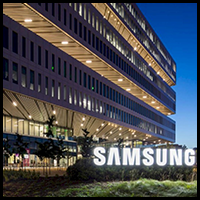Samsung launched the Galaxy S10 back in February, and now it has debuted the new Galaxy Note 10.Beyond the Plus, “lite,” and 5G models and the Galaxy Fold, the two are considered to be the standard variants, and in most cases, they’re more than enough to get the job done. But between them, the differences don’t end at the S Pen and screen sizes. In short, there’s more to think about before deciding which one to get. In a lot of areas, the two smartphones in question are almost the same in which they both have a Qualcomm Snapdragon 855, 8 GB of RAM, under-display fingerprint reader, USB-C, Android 9 Pie right off the bat, and an IP68 rating against water and dust. The differences become more obvious starting with the screen. For starters, the Galaxy S10 sports a 6.1-inch Dynamic AMOLED screen with a 3,040 x 1,440 resolution (550 ppi), and it’s available with 128 GB and 512 GB storage configurations that’s expandable by up to 1 TB with a microSD card. Meanwhile, the Galaxy Note 10 has a 6.3-inch Dynamic AMOLED display with a 2,280 x 1,080 resolution (401 ppi), and it’s available only with 256 GB of built-in storage. In the camera department, they both boast a triple-camera setup, and they slightly differ in the f-numbers. The Galaxy S10 has a 12-megapixel f/1.5-2.4 (wide), 12-megapixel f/2.4 (telephoto), and 16-megapixel f/2.2 (ultrawide) lenses, while the Galaxy Note 10 has a 12-megapixel f/1.5-2.4 (wide), 12-megapixel f/2.1 (telephoto), and 16-megapixel f/2.2 (ultrawide) lenses. The same goes for the front snapper, where the former has a 10-megapixel f/1.9 camera and the latter has a 10-megapixel f/2.2 sensor. As for the batteries, the Galaxy S10 has a 3,400 mAh battery and the Galaxy Note 10 has a 3,500 mAh battery. The difference is just 100 mAh, but the Galaxy Note 10 has the upper hand with its charging rate of 25W as opposed to the Galaxy S10’s 15W.While they both have stereo speakers, only the Galaxy S10 has a headphone jack, which is a deciding factor for most smartphone buyers.







